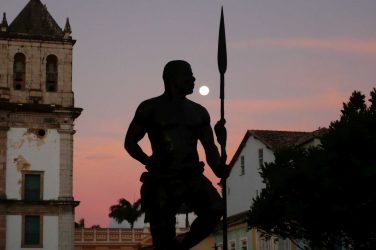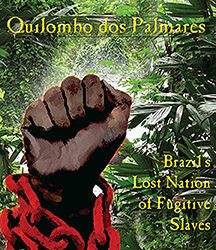 Recently we witnessed President Lula’s great victory, thanks to a program directed to the poor, the Bolsa Família (Family Grant), and we were informed that Brazil’s ranking has fallen in the United Nations Human Development Index, which measures the social welfare of the population, especially that of the poor.
Recently we witnessed President Lula’s great victory, thanks to a program directed to the poor, the Bolsa Família (Family Grant), and we were informed that Brazil’s ranking has fallen in the United Nations Human Development Index, which measures the social welfare of the population, especially that of the poor.
Although these two facts appear to contradict each other, they do not. They are actually two sides of the same coin.
The Bolsa Família was designed to guarantee income to the poor. It is thus an excellent electoral program. But it does not help Brazil to overcome its poverty level. Notwithstanding all the advantages that the Bolsa Família represents for the poor, it can even worsen the poverty. In other words, it is a good program for the poor but it does not reduce poverty.
Poverty – and I know that it is difficult to convey this idea – is not the lack of income. It is, rather, the lack of access to essential goods and services. A part of these can be purchased, thus necessitating some income; but the majority of them need to be offered as public services or they will never reach everyone.
Income helps to strengthen demand but it does not take care of the essential needs, like healthcare, security, sewerage, that cannot be purchased without a very high income. Besides, this income for the poor is completely spent over the course of the month; it does not accumulate until they can leave poverty.
Schooling is the only service that is not consumed and can be accumulated until it removes the poor person from poverty. But schooling, water and sewage connections produce much fewer votes than an income program, even if the amount of income is small – at the maximum it is 70 reais [US$ 32.45] per month.
The income is immediately visible while the social investments require time. And the income is personal: it goes directly to the beneficiary, while the public services are for everyone and do not create complicity, gratitude.
For decades now many have asked themselves how to combat poverty. But they concentrate their attention upon the wealth, the economy, and not upon the poverty, the social. They ask how to make a poor person rich, whether by means of a minimum income, like the Bolsa Família, or by means of salary, also minimum. But no one will leave poverty with these minimum measures, which perpetuate it.
The administrations commemorate the increase of the minimum wage of a few reais, the Bolsa Família of a few reais, as if this were sufficient to eradicate poverty. Others go a bit further and ask themselves how to create employment, without perceiving that in the future the jobs for an untrained workforce will be few and poorly remunerated.
They do not ask how to offer the poor what they need to stop being poor: a decent salary to buy the essentials in the marketplace, decent public healthcare, a quality education system, water and sewage connections, access to pubic services. They ask how to keep them alive although poor, instead of helping them to leave poverty.
Nevertheless, the greatest difficulty, the truly vicious circle to be broken, is how to elect governments that want to eradicate poverty. President Lula was elected thanks to a program that benefits the poor but does not bring them out of poverty. Because the poor voter will always prefer the candidate who offers a stipend, which is individual and immediate, although small, to the one who brings a future, collective perspective to the election.
This is why, at election time, the Bolsa Família will continue to be preferred over the guarantee of water and sewage connections, or over the distant future impact of a quality education. The first is immediate and personal; the others are public and delayed. And poverty will continue winning because the poor experience the sensation of relief that the Bolsa Família brings.
The poor win the election, but, victorious, inequality persists. That is the difference between the left and the right nowadays: some want only to care for the poor; others want to liberate them from the poverty in which they live. President Lula was elected with a conservative discourse, coherent with his conservative government.
The great point of the Bolsa Escola would be to unite the two sides of the question: immediate assistance to the poor combined with a quality education. But, besides the children’s obligatory school attendance, that would demand dedicated, well-prepared teachers and well-equipped schools. It would be necessary to implant a federal Bolsa Escola in the place of the Bolsa Família, and to transform K-12 education into a national responsibility.
Without this, Brazil will never defeat poverty. Poverty will persist and continue winning, and the politicians will continue to be elected, thanks to its maintenance.
Cristovam Buarque has a Ph.D. in economics. He is a PDT senator for the Federal District and was Governor of the Federal District (1995-98) and Minister of Education (2003-04). He was a presidential candidate this year. You can visit his homepage – www.cristovam.com.br – and write to him at cristovam@senador.gov.br.
Translated from the Portuguese by Linda Jerome – LinJerome@cs.com.










